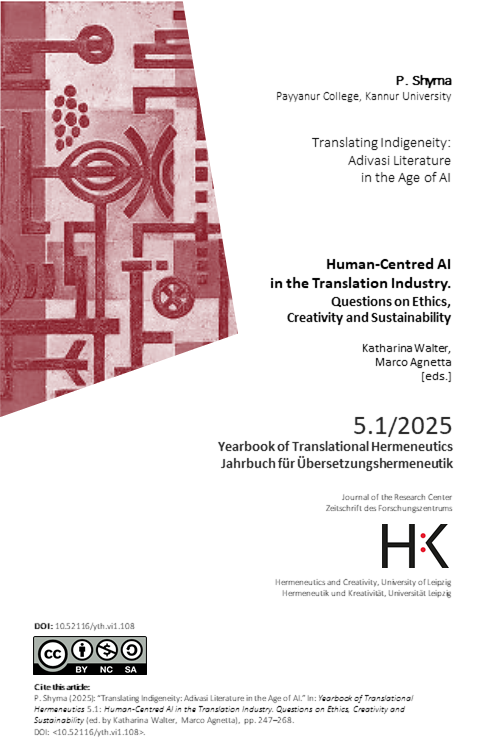Translating Indigeneity: Adivasi Literature in the Age of AI
DOI:
https://doi.org/10.52116/yth.vi1.108Abstract
This article explores the ethical imperatives involved in translating indigenous epistemologies in the era of artificial intelligence (AI). Regardless of the other challenges that AI purportedly presents to a human-centric world order, its inadequacy to mitigate the crisis posed by social inequality cannot be overlooked. The abundant nature of indigenous intelligence coupled with social exclusion and segregation significantly interferes with effective translation of indigeneity with AI-based tools. This article analyzes how enforced peripherality of the Adivasis in Kerala amplifies the risk of misrepresentation and erasure of indigenous knowledges in AI. The first part elaborates on the multiple facets of abundant indigenous knowledge based on select Adivasi texts. The complexities involved in the translation of this abundance by humans are juxtaposed against its homogenized rendering by AI-based tools to describe the ethical problems AI-enhanced translation entails. The banality of stereotyping, which subsumes Adivasi communitarian identity into a monolithic, timeless entity, is analyzed in the second part of this article.

Veröffentlicht
Ausgabe
Rubrik
Lizenz
Copyright (c) 2025 P. Shyma

Dieses Werk steht unter der Lizenz Creative Commons Namensnennung - Nicht-kommerziell - Weitergabe unter gleichen Bedingungen 4.0 International.
